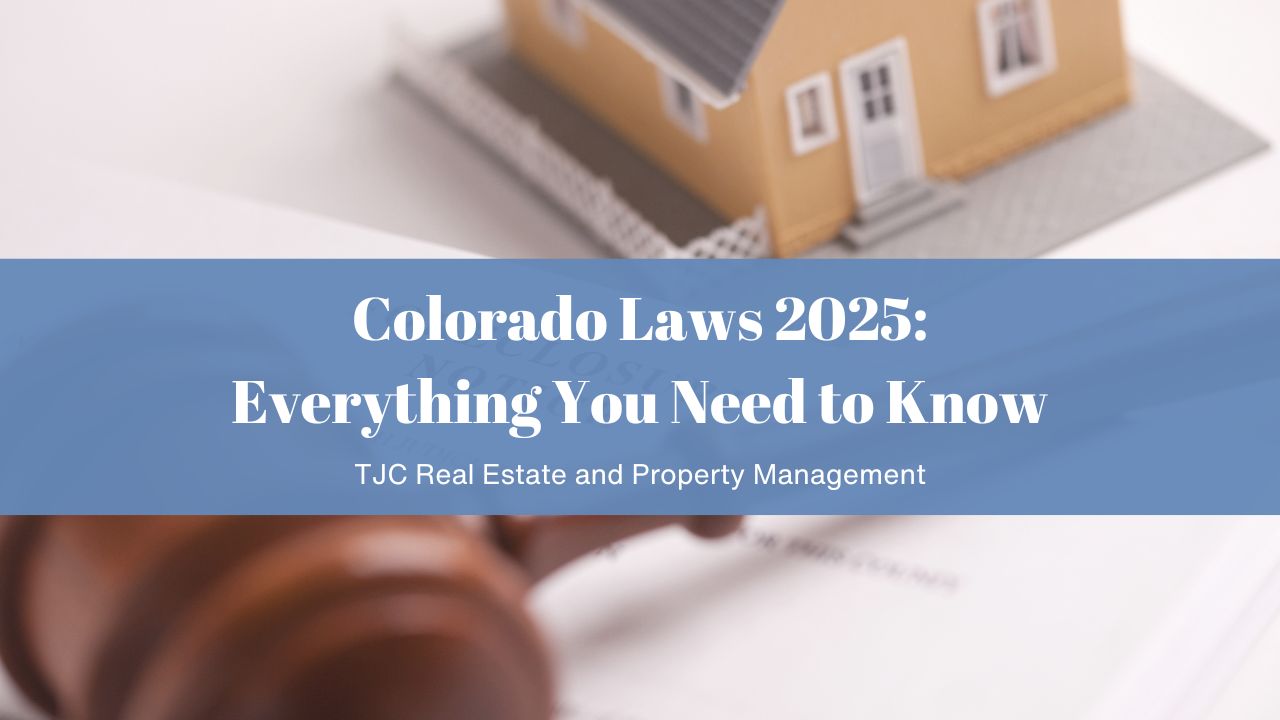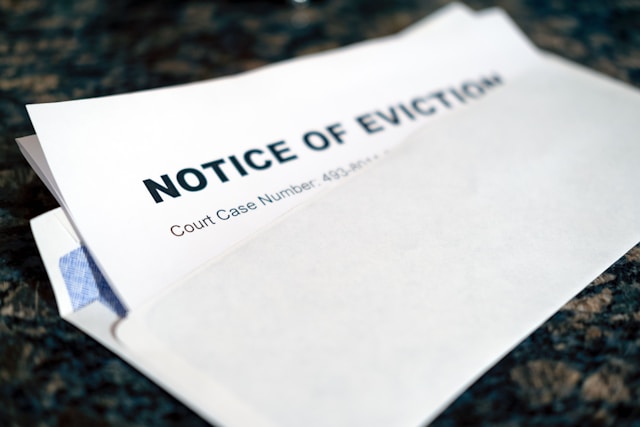
As we step into 2025, Colorado has implemented several legislative changes affecting the landlord-tenant relationship and impact its housing and rental market. From tenant protections to homeowners’ association regulations, these changes aim to enhance fairness and stability for renters, landlords, and homeowners alike.
Understanding these laws is crucial for landlords to ensure compliance and maintain effective property management. We at TJC Real Estate & Management have put together this breakdown of the key legislative updates you need to know.
This law dictates how landlords handle non-renewals of lease and evictions. Under the new regulations, landlords cannot remove a tenant or choose not to renew a lease without a legally defined reason. Acceptable reasons for eviction or non-renewal include:

The only major exception to this law is if the tenant has lived in the rental unit for less than 365 days. In such cases, landlords retain the right to end the lease without just cause. This house bill is intended to protect long-term tenants from arbitrary displacement. As such, landlords should carefully document lease violations or provide proper notice if they plan to reclaim the property.
Under previous laws, tenants with disabilities were responsible for restoring a rental unit to its original condition after making modifications for accessibility. House Bill 24-1318 removes that requirement. Now, tenants who modify their rental unit to accommodate a disability do not have to pay to reverse those changes when they move out.
However, the cost of the modifications themselves remains the tenant’s responsibility, unless a different agreement is made with the landlord. Landlords should be aware of these new protections and ensure they comply with Fair Housing laws.
The warranty of habitability law, which ensures rental properties are safe and livable, has been strengthened to include additional protections for tenants.

This bill introduces:
House Bill 24-1007 prohibits local governments from imposing restrictions on the number of people who can live in a single dwelling based on familial relationships. In other words, municipalities cannot create laws that limit household occupancy to only family members.
This change increases flexibility for landlords by allowing them to rent properties to larger groups, such as roommates, multi-generational families, or unrelated individuals who choose to live together. However, landlords should still consider property size, safety regulations, and lease agreements when determining reasonable occupancy limits.

Previously, tenants facing eviction were required to pay filing fees to submit legal responses or motions in court. House Bill 24-1099 eliminates these fees, making it easier for tenants to contest eviction cases. Specifically, the bill:
This law could lead to an increase in contested eviction cases. Keeping thorough records of lease agreements, payment history, and communication with tenants will be essential to successfully navigating eviction proceedings.
This bill changes how homeowners’ associations (HOAs) can collect delinquent payments from property owners. If a rental property is part of an HOA, landlords should be aware of the updated procedural requirements, which include:
Colorado’s 2025 legislative updates impact how landlords manage and rent out their properties. The new laws reinforce tenant protections, clarify eviction and lease renewal procedures, and introduce stricter habitability requirements. Navigating these legal changes can be complex, so landlords should seek help from an attorney.
If you’d like help managing your rental properties, turn to TJC. We’re here to protect your investment and make property management easier for you. Contact us today for more information!
Disclaimer: This blog should not be used as a substitute for legal advice from a licensed attorney in your state. Laws change, and this post might not be updated at the time of your reading. Please contact us with any questions you have in regards to this content or any other aspect of your property management needs.
© 2025 TJC Real Estate. All rights reserved. Privacy Policy | Terms of Use | Portable Tenant Screening & Disclosure | Website by Distill